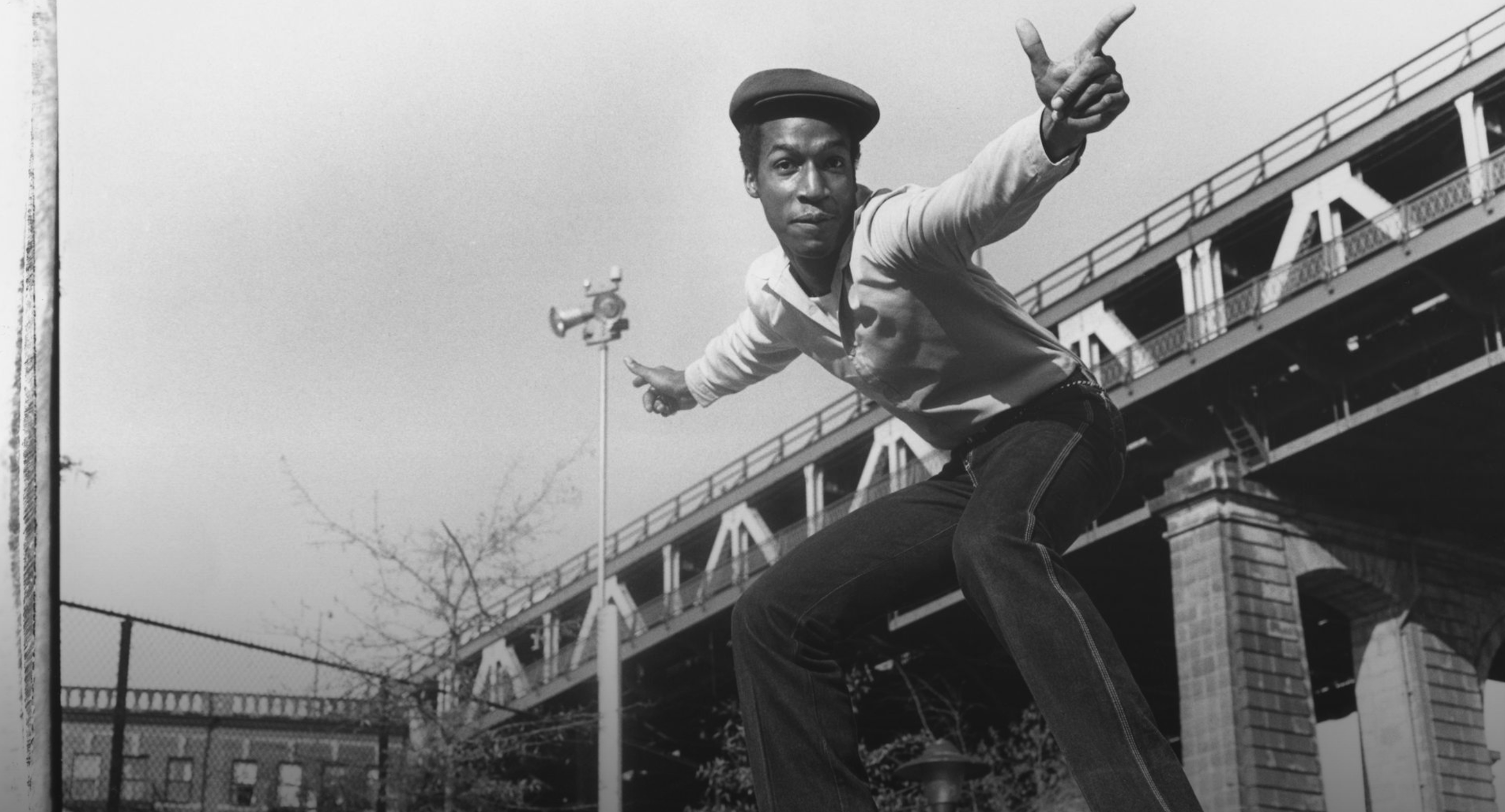Image: Grandmaster Flash, Brooklyn, 1981.
For a comprehensive resource on women in hip hop history, see The Hip Hop Feminist Syllabus, curated by professor Janell Hobson. For additional articles about all things hip hop, check out hip hop historian Austin McCoy’s #HipHop50 Syllabus.
Alec Banks: From Jamaica to the Bronx.
Ben Barzilai: The Fierce, Flourishing World of Battle Rap.
Daniel Levin Becker: A Brief History of Bling: The story of hip-hop can be told through the stunning and surreal evolution of the jewelry the artists wear.
Timothy Bella: She threw a party to buy school clothes. Hip-hop was born that night.
Kim Bellware: The unlikely origins of ‘Rapper’s Delight,’ hip-hop’s first mainstream hit.
Keisha Blain: How the Shakurs Became One of America’s Most Influential Families.
Ben Brasch: How André 3000’s ‘the South got something to say’ speech changed hip-hop.
Mickell Carter: The Transnational Activism of Women in Hip Hop.
Jeff Chang: It’s a Hip-Hop World: Rap music has long been considered a form of resistance against authority. Boosted by the commercialization of the music industry, that message has proven its appeal to youth all around the world. Now, from Shanghai to Nairobi to São Paulo, hip-hop is evolving into a truly global art of communication.
Gabrielle Chenault: Break dancing fostered Black and brown unity. Some of its pioneers worry of erasure.
Raina Douris, Kimberly Junod, & John Morrison: Philadelphia’s place in hip-hop history.
Kiana Fitzgerald & Phil Harrell:
- Eric B. & Rakim change the flow of rap with ‘Paid in Full’.
- Kurtis Blow breaks hip-hop nationally with his 1980 debut.
Toby Jenkins: How a hip-hop mindset can help teachers in a time of turmoil.
Antoine S. Johnson: Golden-Era Rap Music and the Black Intellectual Tradition.
Brian Josephs: Mixtape Sites Like DatPiff Propelled Rap. Can They Be Preserved?
Anumita Kaur: How Black Panthers’ ideals shaped 2Pac — and his groundbreaking music.
Su’ad Abdul Khabeer: ‘Knowledge of self’: How a key phrase from Islam became a pillar of hip-hop.
Miles Marshall Lewis: In 50 years, rap transformed the English language, bringing the Black vernacular’s vibrancy to the world.
Julia Malleck: How hip-hop became a multibillion-dollar global business.
Wesley Morris: How Hip-Hop Conquered the World.
NPR Music’s All Rap is Local series:
- Jeff Weiss: How LA proved hip-hop could go global — by staying thoroughly local.
- Andrew Nosnitsky: How the Bay Area became a rap incubator with a chip on its shoulder.
- Daudi Abe: How Seattle rap crashed the mainstream by swimming against the current.
- Sheldon Pearce: How Miami rap made overindulgence the new baseline.
- Stephen Kearse: How New Orleans soldiered through struggle and gave rap its bounce.
- Kiana Fitzgerald: How Houston became the self-sustaining heart of Texas rap.
- Zandria F. Robinson: How Memphis rap charted a passage from Delta blues.
- Jewel Wicker: How Atlanta became the center of the rap universe
- Sheldon Pearce: How St. Louis recalibrated rap radio.
- William E. Ketchum III: How Detroit and Flint became havens for rap dark horses.
- Meaghan Garvey: How Chicago rap became a home for controversial, visionary stars.
- Dart Adams: How Boston quietly triumphed as a seminal rap city.
- Sheldon Pearce: How the DMV and Virginia Beach made rap safe (and profitable!) for eccentrics.
- Judnick Mayard: How New York defined rap’s attitude.
Mark Anthony Neal:
- . . . And Bless the Mic for the Gods: Rakim Allah.
- “Hip-Hop as Archival Practice and Form”: An Interview with Mark Anthony Neal.
Victor Ultra Omni: Hip Hop’s Gay Cousin: House-Structured Ballroom Culture.
Niela Orr: The Future of Rap is Female.
Sheldon Pearce: 2023 ‘Til Infinity: Realizing the dream of hip-hop’s next 50 years.
Alyssa Goldstein Sepinwall: Unsilencing the Haitian Revolution in US Hip Hop.
Danyel Smith: Remembering the Rappers We Lost: Biggie. Tupac. DMX. We pay tribute to 63 stars who died too young.
The Washington Post: 50 hip-hop artists share 50 songs they love.
